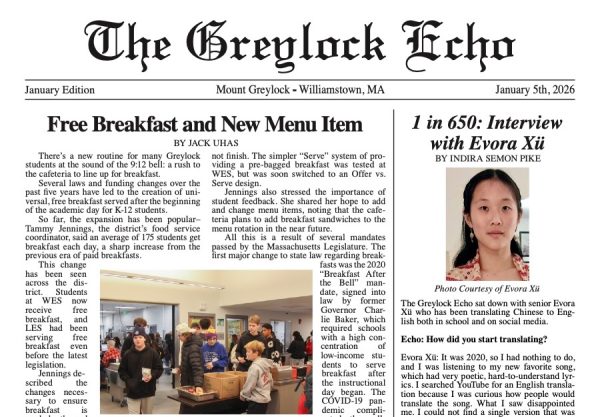Dr. Eileen Bote Talks Nutrition
On Tuesday, October 25, Dr. Eileen Bote delivered a Greylock Talk in the library during high school Directed Study. Bote, a nutritionist, focused on how to improve one’s nutrition and the problems America faces when it comes to living healthy. Bote addressed the severe lack of attention and importance nutrition has in America, stating that fifty-seven percent of Americans would rather do their taxes than eat healthy and that doctors only spend about seven minutes talking to their patients about nutrition. Saying that this amount of time is not nearly enough to educate people about nutrition, Bote gave the audience a nutritional education, which should really take several hours, but condensed it into 30 minutes.
With a PowerPoint slideshow, Bote guided the audience through some of the best ways to live healthy. The first was to continue healthy living over the course of one’s lifespan. The second piece of advice she gave was to have a varied diet and to focus on nutrient dense, healthier foods and beverages. Bote then stated that the American crusade against all calories is misleading because the true culprits of obesity in this country are the harmful calories and effects of sugars and saturated fats.
“Americans are consuming over a hundred pounds of sugar every year,” Bote stated, “and if we look at the language of many the laws that restrict certain chemicals from our food, we see that sugar is not included. There are plenty of lobbyists for big sugar, like Domino and others, in our government, and, honestly, I think we were sold out!” Bote warned the audience to be cautious of sugary products and learn how to identify them. “There are 57 different names manufacturers use to hide sugar in your food,” Bote said as she showed a list of many common names companies use to “hide” sugar.
Finally, as Bote neared the end of her talk, she handed out a recipe for a healthy nut-seed brittle. As people passed the recipes around the room, Bote discussed many common diets and either praised them for actually being healthy or debunked their supposed benefits as a mere fad. At the end of the talk, Bote left the audience with advice about diets: “If it seems too good to be true, then it’s probably not a real diet.”







